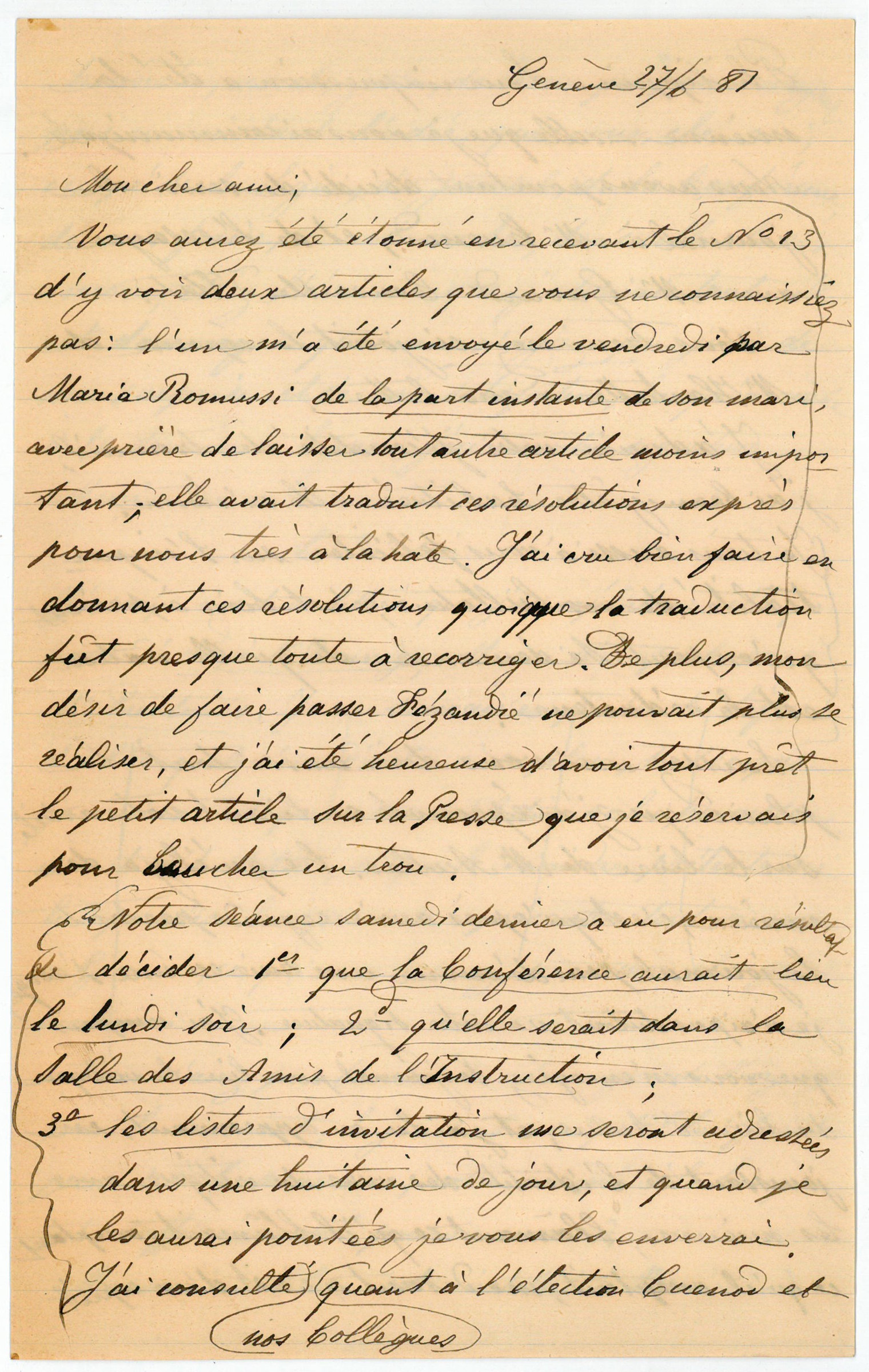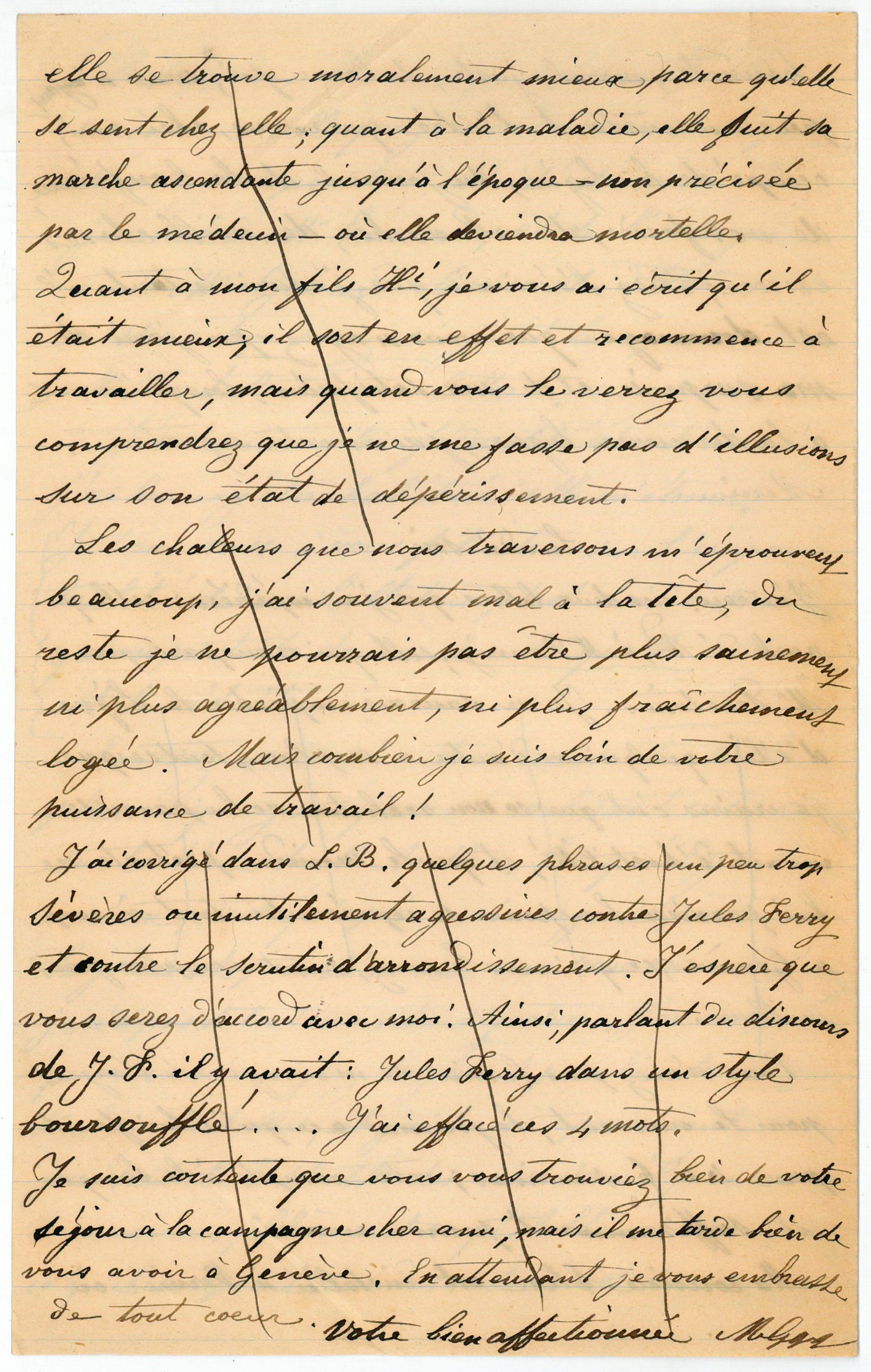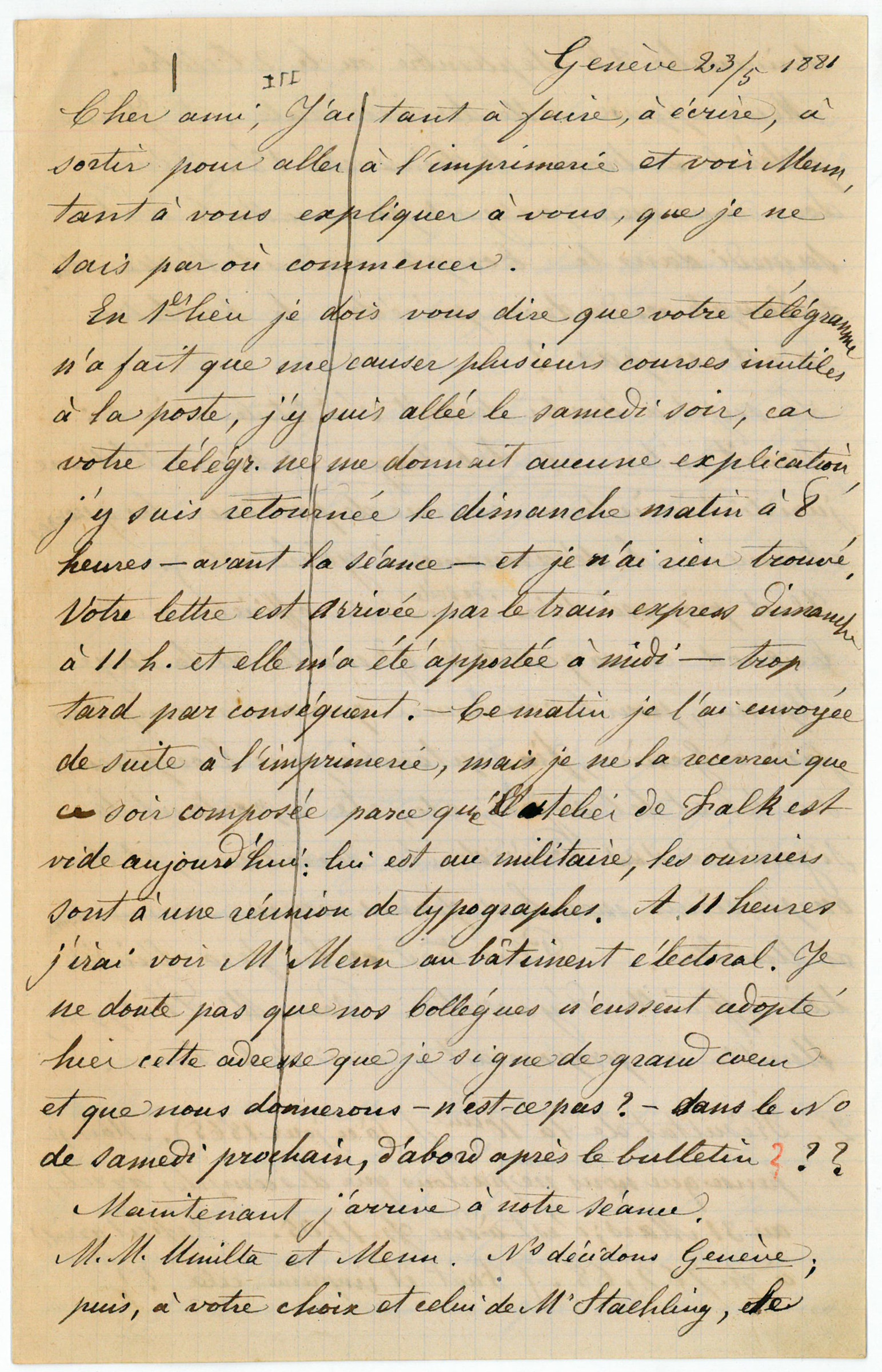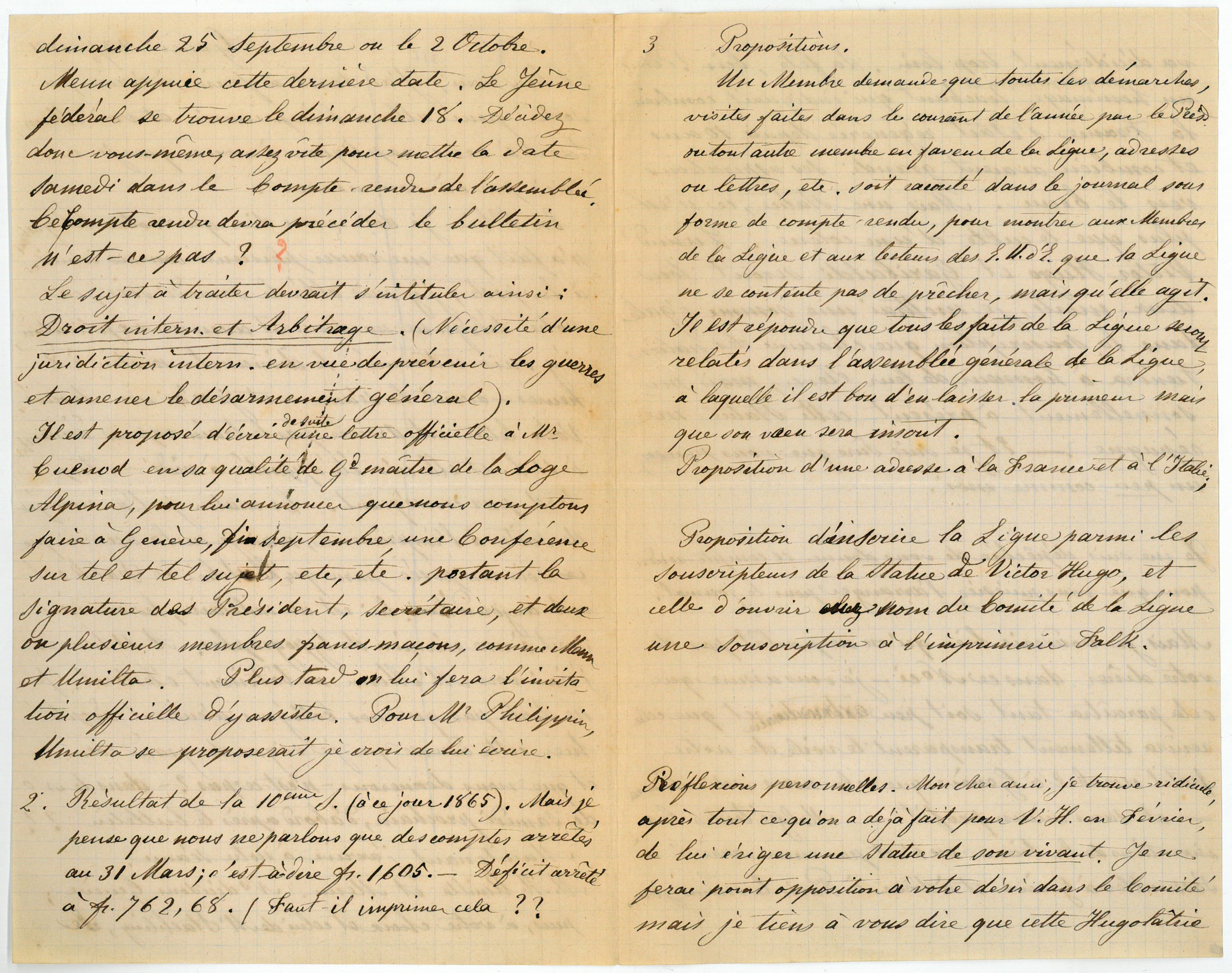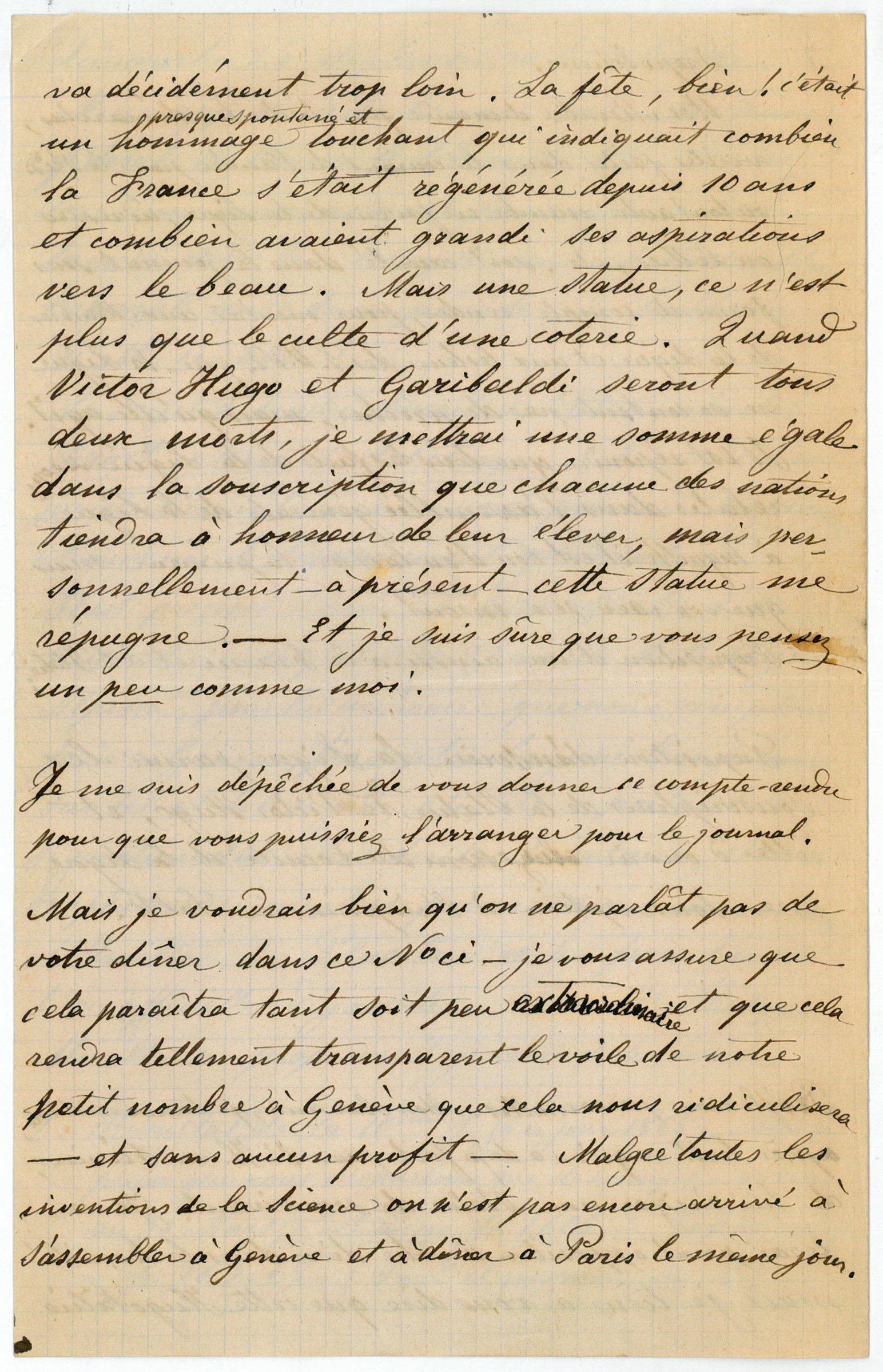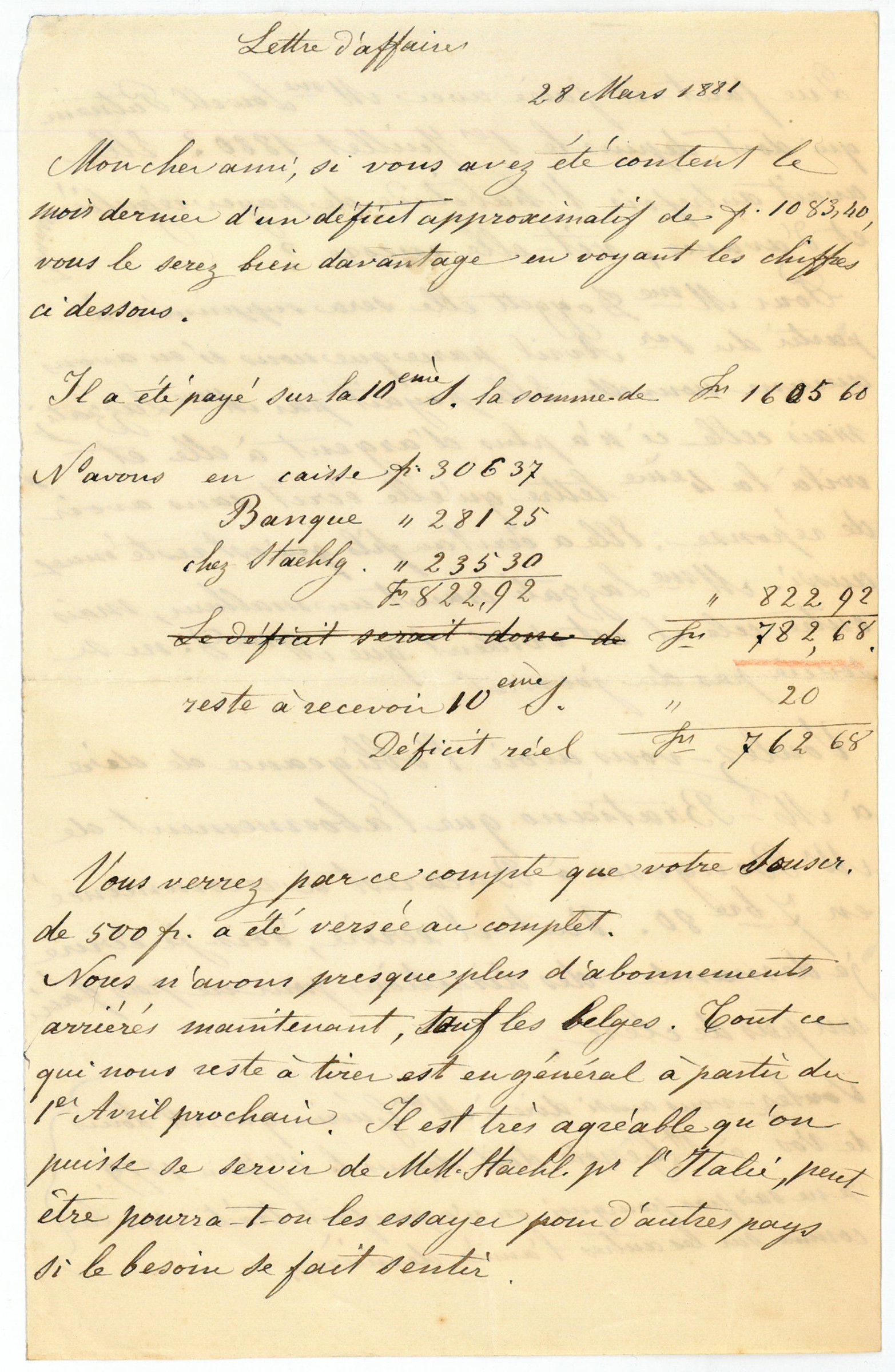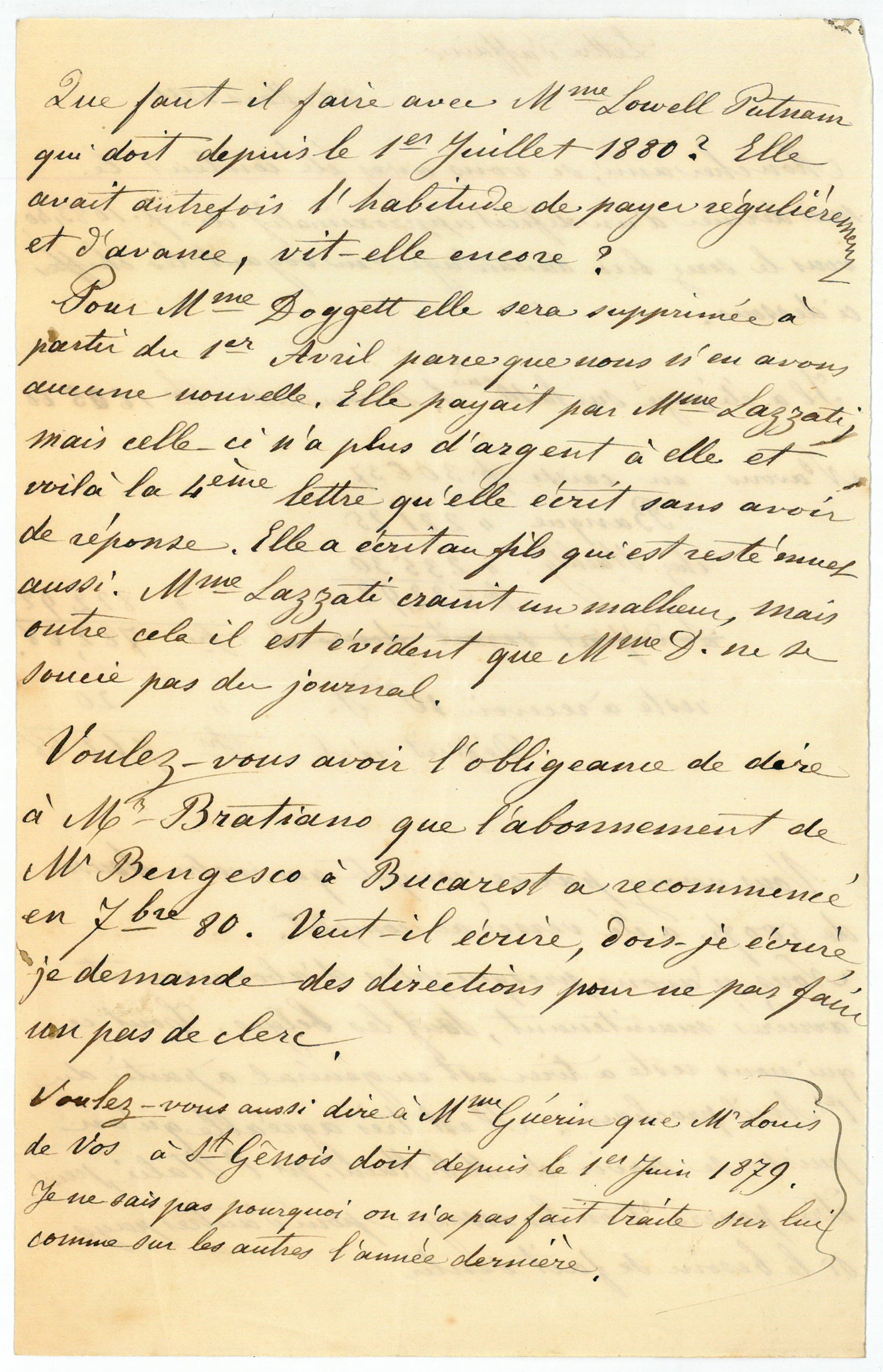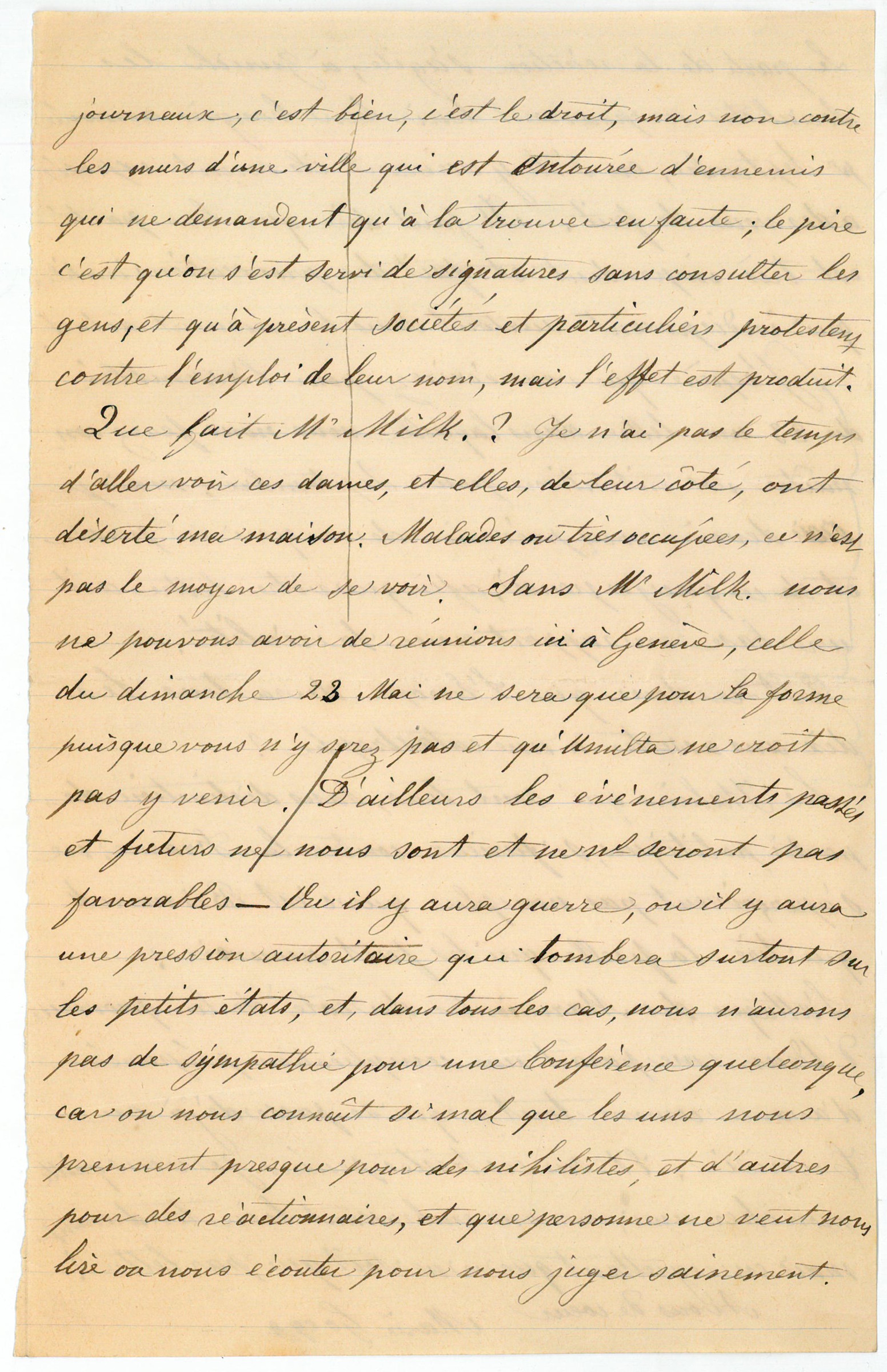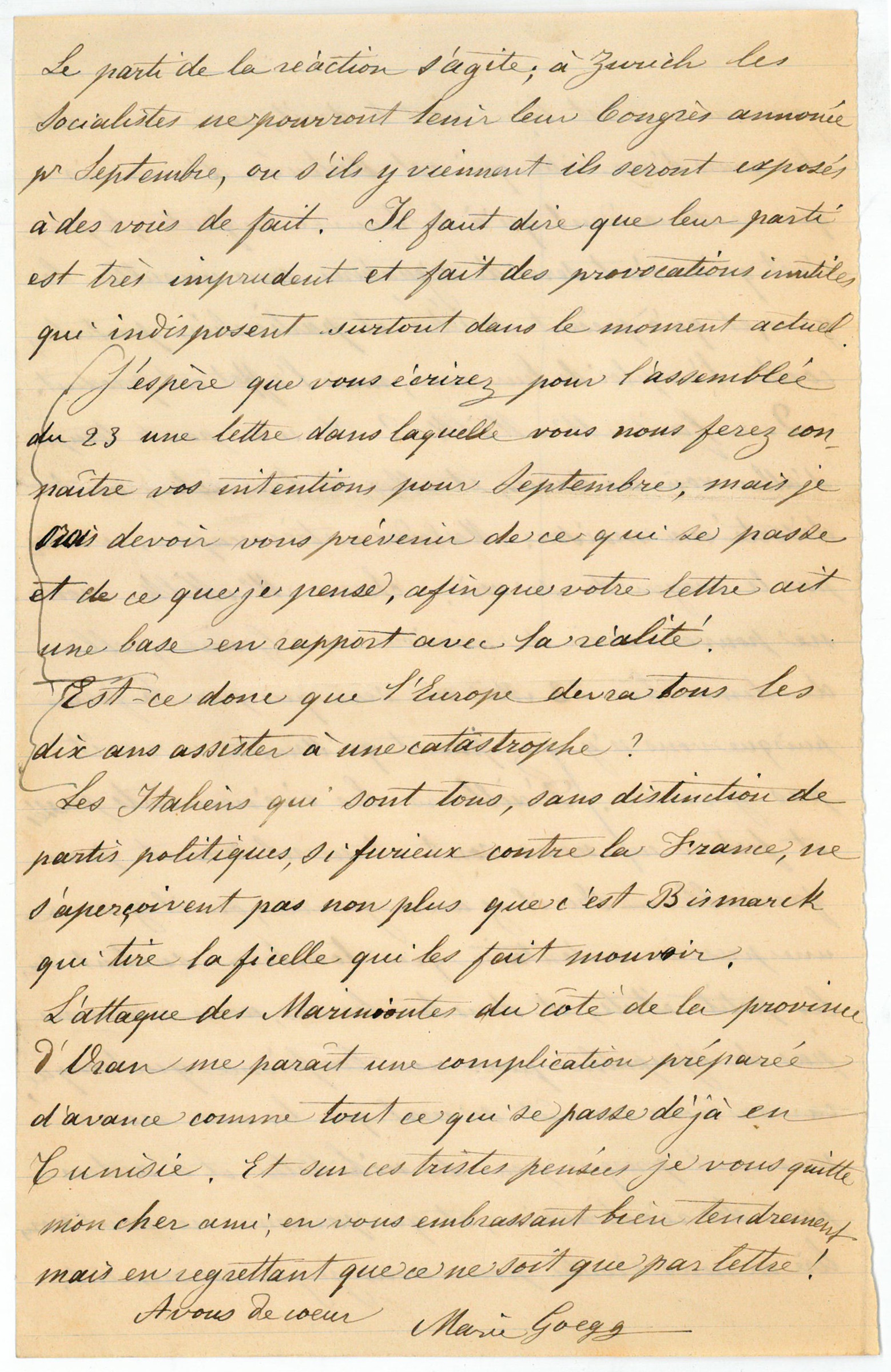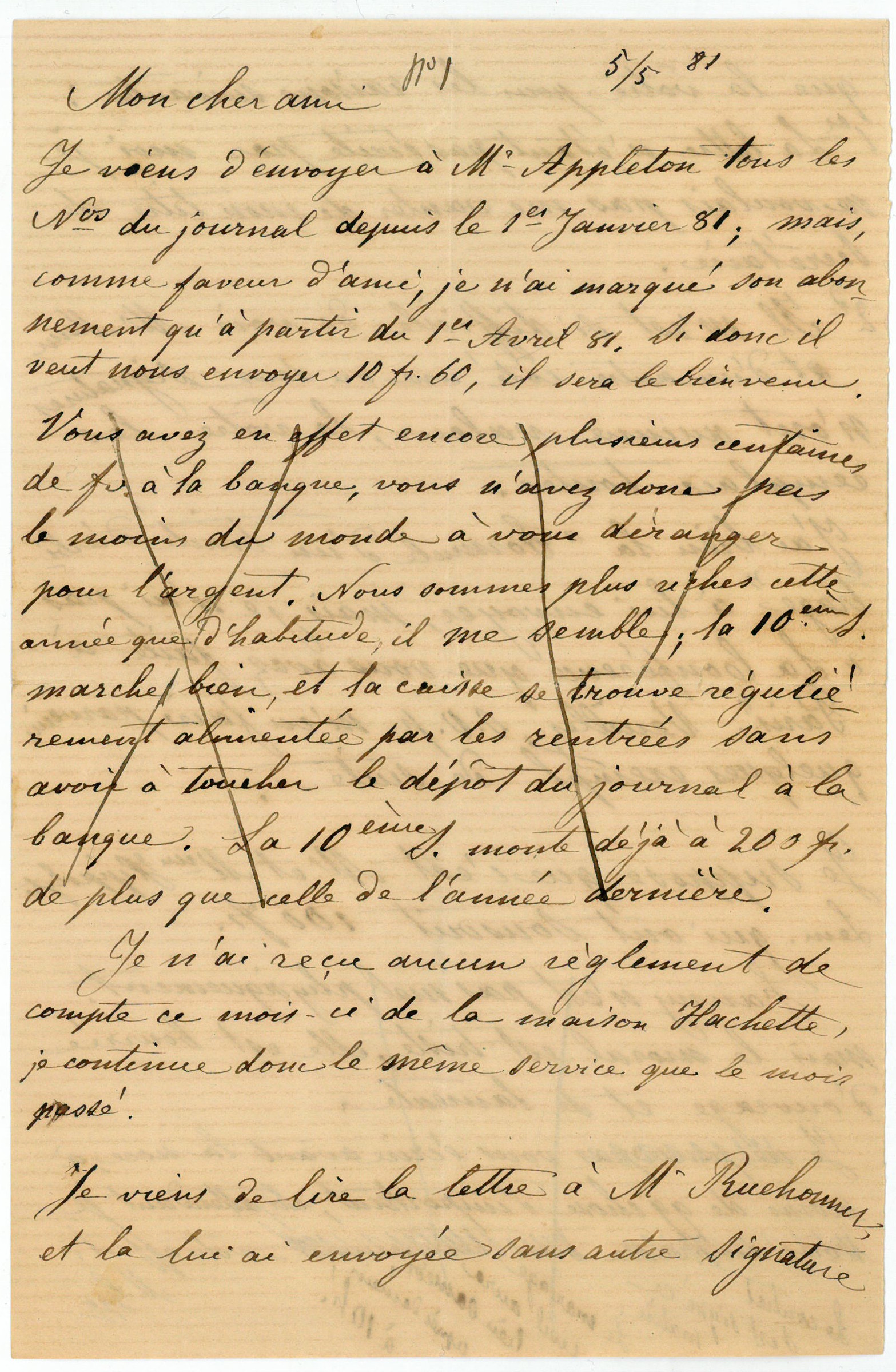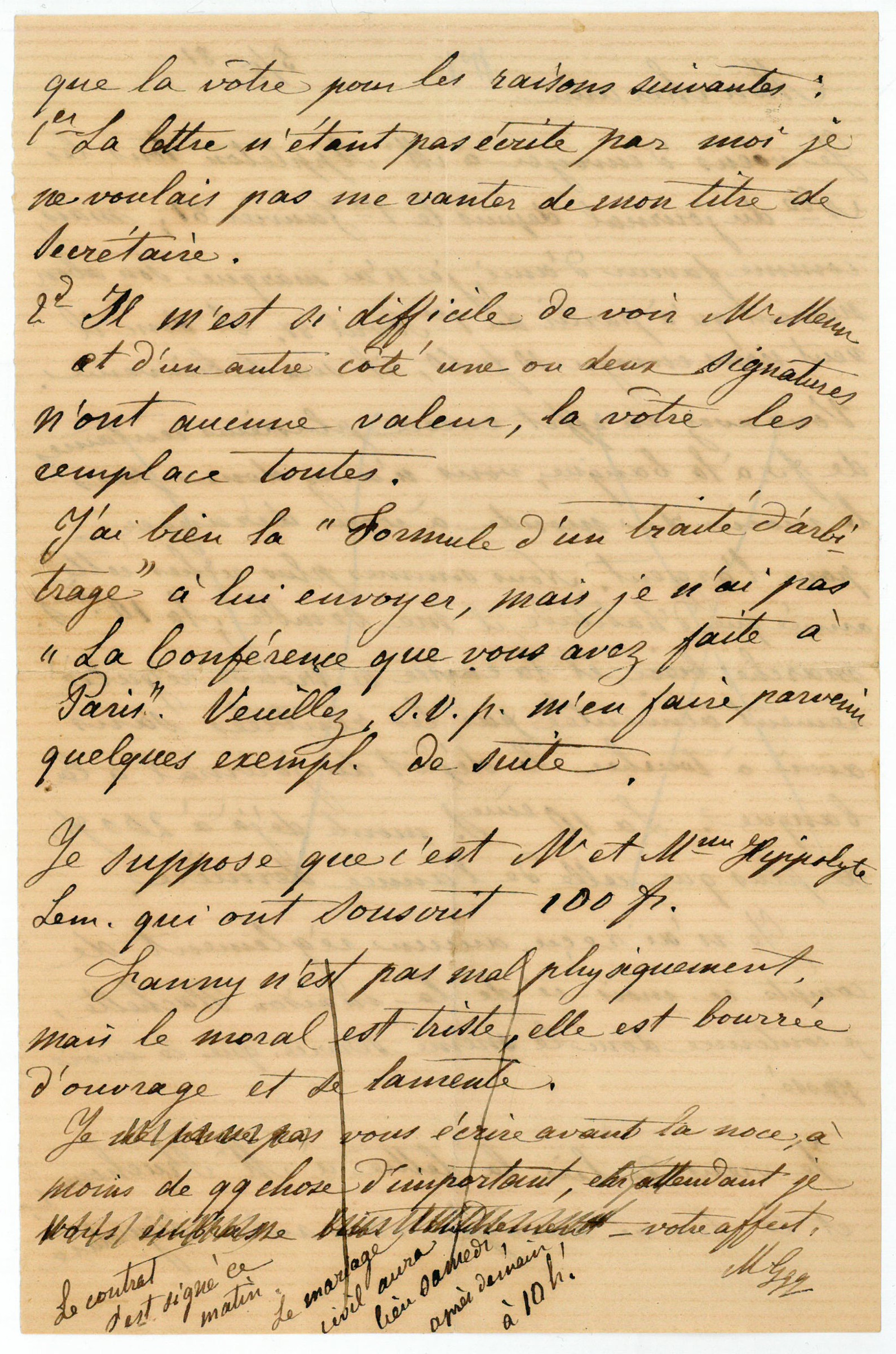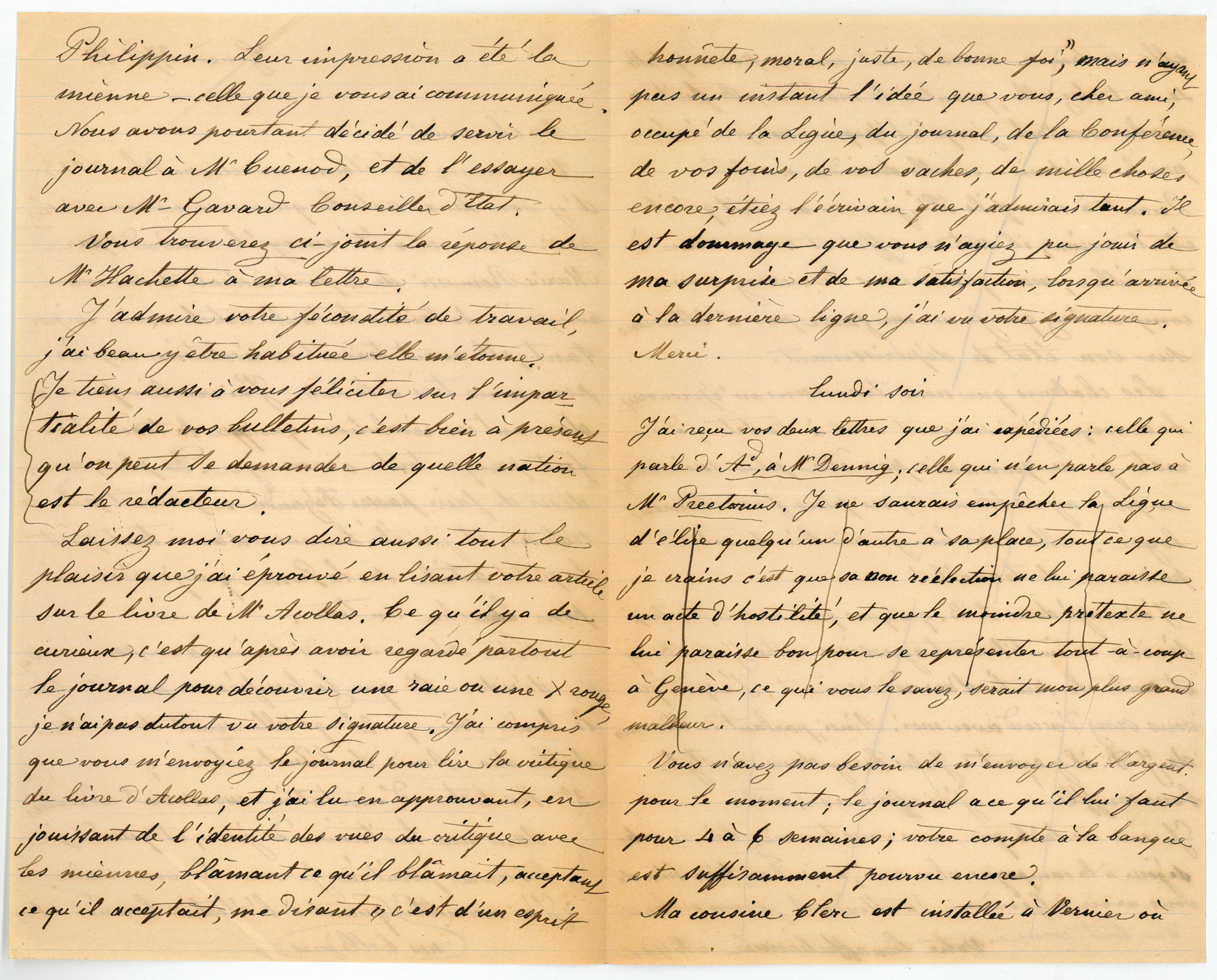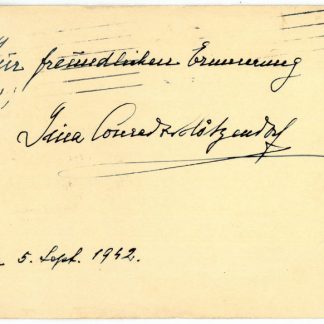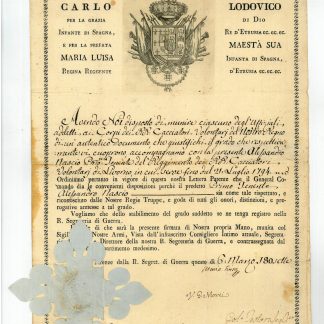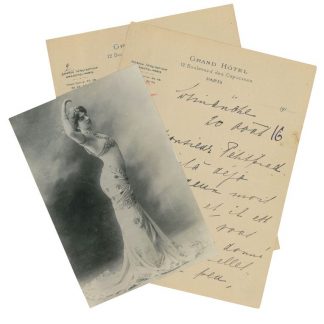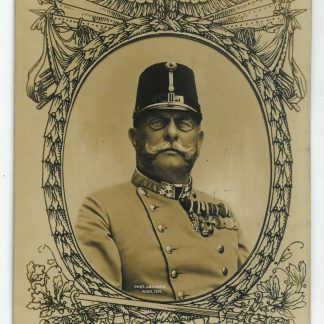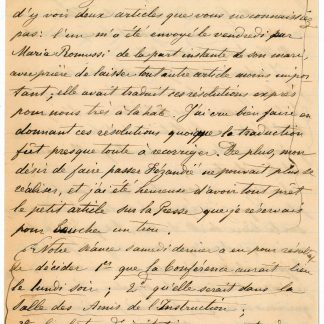"Will Europe have to witness a catastrophe every ten years?": Marie Goegg and the International League for Peace and Freedom
3 autograph letters signed and 2 fragments of autograph letters, one of which signed.
8vo. Together 15 pp. In French.
€ 6,500.00
Historically important correspondence with the early pacifist Charles Lemonnier (1806-91) concerning the administration of the International League for Peace and Freedom, its official journal "Les États-Unis d'Europe", a possible new peace congress in Geneva in the context of the diplomatic crisis between France and Italy caused by the French conquest of Tunisia, and a monument to Victor Hugo.
Lemonnier took over the presidency of the International League for Peace and Freedom in 1871, when the Franco-Prussian War had almost led to the dissolution of the organization and left it greatly diminished and weakened. That Marie Goegg-Pouchoulin served as secretary to the League and effectively administered it at this difficult moment is all but forgotten today. The lasting negative impact of the Franco-Prussian War on the International League for Peace and Freedom is very much felt in the correspondence, for one in the admission of the decimation of membership and visibility, which, in Goegg's opinion, also casts doubt on the success of a potential peace conference: "Moreover, past and future events are not and will not be in our favour. Either there will be war, or there will be authoritarian pressure, which will fall especially on the small states, and in any case, there will be no sympathy for any conference, because we are so poorly known that some people almost take us for nihilists, and others for reactionaries [...]" [undated, May or June 1881].
The same letter shows the strong anti-Prussian and German sentiment that induces Goegg to blame on Bismarck the French conquest of Tunisia and thus the affront against Italy: "The Italians, who are all, without distinction of political party, so furious at France, do not realize either that it is Bismarck who pulls the strings that moves them. The attack of the Marmioutes [!] in the province of Oran seems to me to be a complication prepared in advance, like everything that is already happening in Tunisia". While it is true that Germany consented to the establishment of a French protectorate in Tunisia at the Berlin Conference of 1878, the subsequent French invasion under the pretense of military action against Algerian Kroumir rebels hiding in Tunisia can hardly be blamed on Bismarck.
Despite concerns about the relevance of a peace conference at this moment, the longest letter in the correspondence is dedicated to planning a conference on "International law and arbitration (the need for international jurisdiction to prevent war and bring about general disarmament)" [23 May 1881]. Among the fellow activists organizing the conference in Geneva were the Italian independence fighter and author of one of the first studies of the Italian mafia, Angelo Umiltà (1831-93), and the Swiss painter and educator Barthélemy Menn (1815-93). Institutional support was expected from the Grand Lodge Alpina of Switzerland, of which Umiltà and Menn were also members. Goegg advises Lemonnier not to publish anything about a dinner meeting in preparation of the conference, as it would "make the veil of our small number in Geneva so transparent that it will make us look ridiculous - and without any profit", jokingly adding: "despite all the inventions of science, we still have not managed to assemble in Geneva and dine in Paris on the same day". Among the items of business for the conference was a proposal to "include the League among the subscribers to the Victor Hugo statue", apparently supported by Lemonnier, to which Goegg adds a critical personal note: "I find it ridiculous, after all we already did for V. H. in February, to erect a statue of him during his lifetime. I shall not oppose your desire before the committee, but I would like to tell you that this Hugolatry is definitely going too far".
In a final letter, she discusses her family, her son's fragile health, and articles for the Bulletin of the League, including corrections she felt obliged to make to an article against the French Prime Minister Jules Ferry, a central actor in the conquest of Tunisia.
Includes a proof sheet with a few corrections, probably by Goegg, of a statement issued by the League and signed jointly by Goegg and Lemonnier, calling for unity between France and Italy despite the affront of the conquest of Tunisia and, curiously for peace activists, pointing to the "common enemies" Germany and Austria, specifically mentioning Alsace, Lorrain, Trieste and Trento. The fates of Ireland and Poland are also invoked, as well as the "living symbols" of the shared "destiny" Giuseppe Garibaldi and Victor Hugo.
Minor browning. One letter with a small tear to the fold, minimally affecting the text.

